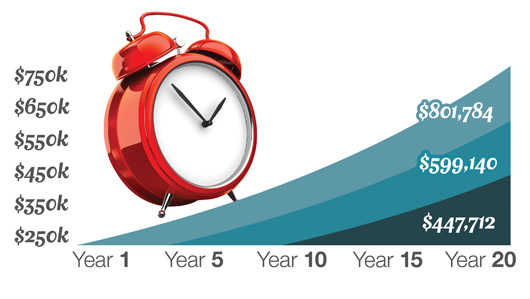
RETIREMENT • Read Time: 4 min
Women and Financial Strategies
Forty-four percent of American women are the primary breadwinner in their house.1 Yet only 10% of women feel very confident in their ability to fully retire with a comfortable lifestyle.2
Although more women are providing for their families, when it comes to preparing for retirement, they may be leaving their future to chance.
Women and College
The reason behind this disparity doesn't seem to be a lack of education or independence. Today, women are more likely to go to college and graduate than men.3 So what keeps them from taking charge of their long-term financial picture?
One reason may be a lack of confidence. In one recent study, less than half of the more than 2,000 women surveyed said they felt satisfied with their knowledge of finances.4 Women may shy away from discussing money because they don’t want to appear uneducated or naive and hesitate to ask questions as a result.
Insider language
Since Wall Street traditionally has been a male-dominated field, women whose expertise lies in other areas may feel uneasy amidst complex calculations and long-term financial projections. Just the jargon of personal finance can be intimidating: 401(k), 403(b), fixed, variable.5 To someone inexperienced in the field of personal finance, it may seem like an entirely different language.
But women need to keep one eye looking toward retirement since they may live longer and could potentially face higher health-care expenses than men.
If you have left your long-term financial strategy to chance, now is the time to pick up the reins and retake control. Consider talking with a financial professional about your goals and ambitions for retirement. Don’t be afraid to ask for clarification if the conversation turns to something unfamiliar. No one was born knowing the ins-and-outs of compound interest, but it’s important to understand in order to make informed decisions.
Compound Interest: What’s the Hype?
Compound interest may be one of the greatest secrets of smart investing. And time is the key to making the most of it. If you invested $250,000 in an account earning 6%, at the end of 20 years your account would be worth $801,784. However, if you waited 10 years, then started your investment program, you would end up with only $447,712.
This is a hypothetical example used for illustrative purposes only. It does not represent any specific investment or combination of investments.
- CNBC.com, January 19, 2017
- TransAmericaCenter.org, 2017
- The Atlantic, August 8, 2017
- Time.com, February 12, 2018
- Distributions from 401(k), 403(b), and most other employer-sponsored retirement plans are taxed as ordinary income and, if taken before age 59½, may be subject to a 10% federal income tax penalty. Generally, once you reach age 70½, you must begin taking required minimum distributions.
The content is developed from sources believed to be providing accurate information.The information in the material in not intended as tax or legal advice. It may not be used for the purpose of avoiding any federal tax penalties. Please consult legal or tax professional for specific information regarding your individual situation. The opinions expressed and material provided are for general information, should not be considered a solicitation for the purchase or sale of any security.
Have A Question About This Topic?
Related Content
Pundits go on and on about how “terrible” or “wonderful” annuities are, but they never talk about whether annuities are right
The list of IRA withdrawals that may be taken without incurring a 10% early penalty has grown.
Investment tools and strategies that can enable you to pursue your retirement goals.





